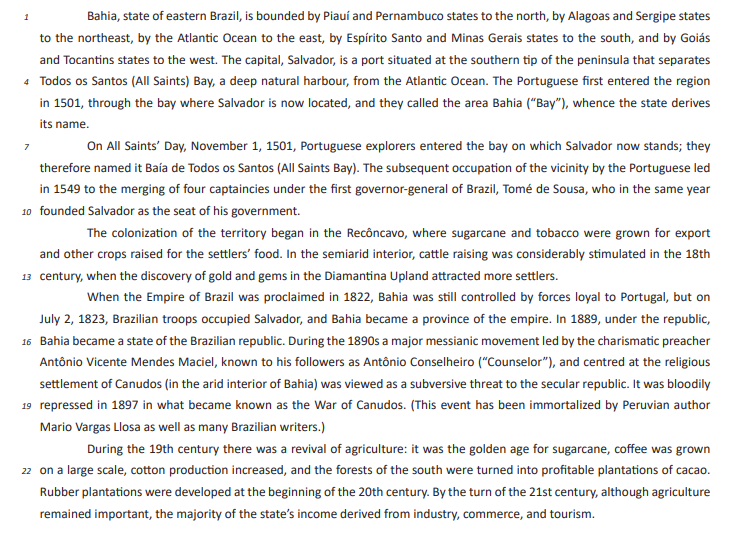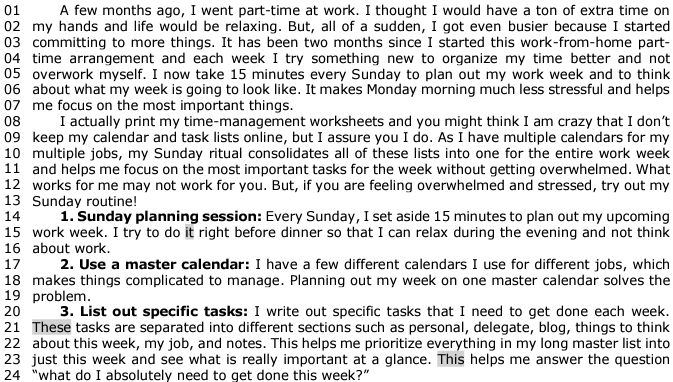TEXT:
Mistakes help you learn
Maija Kozlova
May 19, 2021
It is not uncommon for English language lessons to favour
communication over accuracy: real life is nothing like a
classroom! In real-life situations, when you make a mistake in the
language you are learning, context provides ample information
as to what the intended message is. In fact, most of the time,
impeccable accuracy is not needed at all! “Don’t worry about
making mistakes,” I used to tell my English language students.
“Communicating is the most important thing!”
While making mistakes when trying to master a language might
seem counter-intuitive, letting learners freely communicate
and negotiate meaning is key to success. A learner who
communicates a lot while making a few mistakes is much more
likely to develop confidence for dealing with real-life situations
than a learner who communicates very little because they’re
afraid of making any. In communicative language teaching, for
example, the teacher is tasked with both encouraging the learner
to express themselves and with providing corrective feedback in
a way that is not obstructive to communication.
This means that if a learner says, “I go swimming last night,”
it is much more effective to respond with, “Oh, that’s nice, you
went swimming. What did you do after?” rather than, “No! You
went swimming! Use past simple for past events!” – the former
encourages the learner to continue their narrative while the latter
is much more likely to make the learner stop in their tracks,
re-evaluate the context, and think twice before expressing
themselves again in the future, for the fear of making a mistake
again. Teachers need to be careful not to parrot back everything
the students say in this manner, of course, but the technique
can be an effective method of acknowledging the content of a
student’s response, while also providing feedback on accuracy.
The importance of the freedom to make mistakes in language
learning is also supported by research in psychology, which
suggests that learners who try a task without having mastered
it completely experience improved retention of new information.
A similar experiment in the context of language learning also
indicates that the process of making mistakes activates a greater
network of related knowledge in the brain, which leads to superior
learning outcomes.
It is believed that the key to help learners feel relaxed and ready
for communicating freely in the classroom is authenticity. This
means that there should be both a real communicative need for
a learner to speak and the authentic reaction from those around
to what the learner has said.
Here are a few ways of how such authentic communicative
interactions can be practiced in the classroom:
• surround learners with the English language – encourage
them to speak to you and each other in English;
• don’t worry about diverging from topics that are not strictly
covered in your lesson plan;
• model communication by telling your students stories and
anecdotes about your own life and encourage them to do
the same;
• let your learners have fun with English – give them colloquial
expressions to try and ask them to share some expressions
;
• do not overcorrect – make a note of errors and cover it in
subsequent lessons;
• avoid the temptation to turn what was intended as speaking
practice into a full-on grammar lesson.
While easier said than done, especially when the outcome of an
exam is at stake, it is worth remembering that people that our
learners might come to interact with outside of the classroom
are driven by the natural desire to understand the people they
communicate with. This is especially powerful when practiced in
the context of a classroom. They set the learners up for success
in real-life communication. In other words, when communication
is the goal, mistakes are secondary, and that’s real life, isn’t it?
Adapted from: https://wwwcambridgeenglish.org/blog/mistakes-help-you-learnfreedom-to-fail-in-games-and-language-learning/


